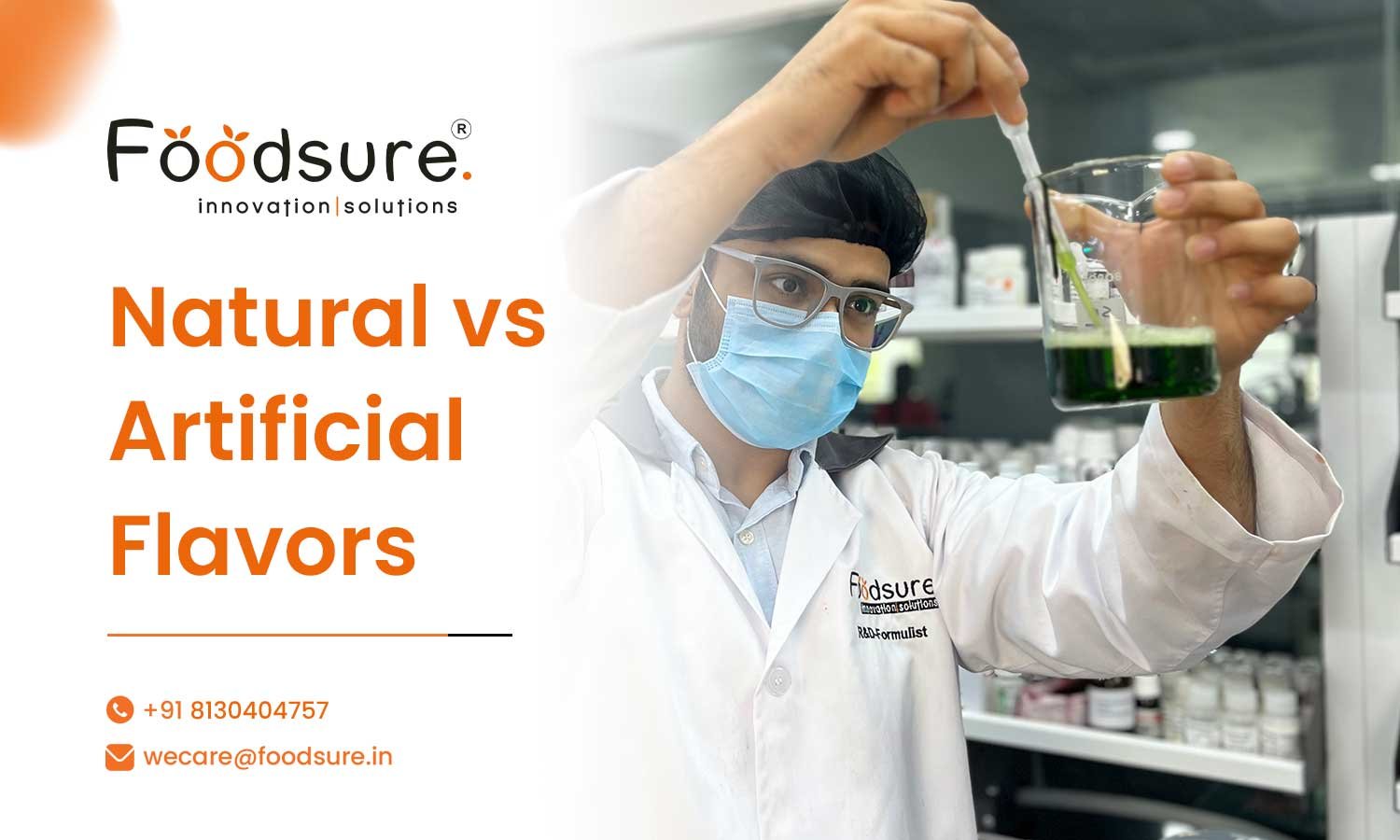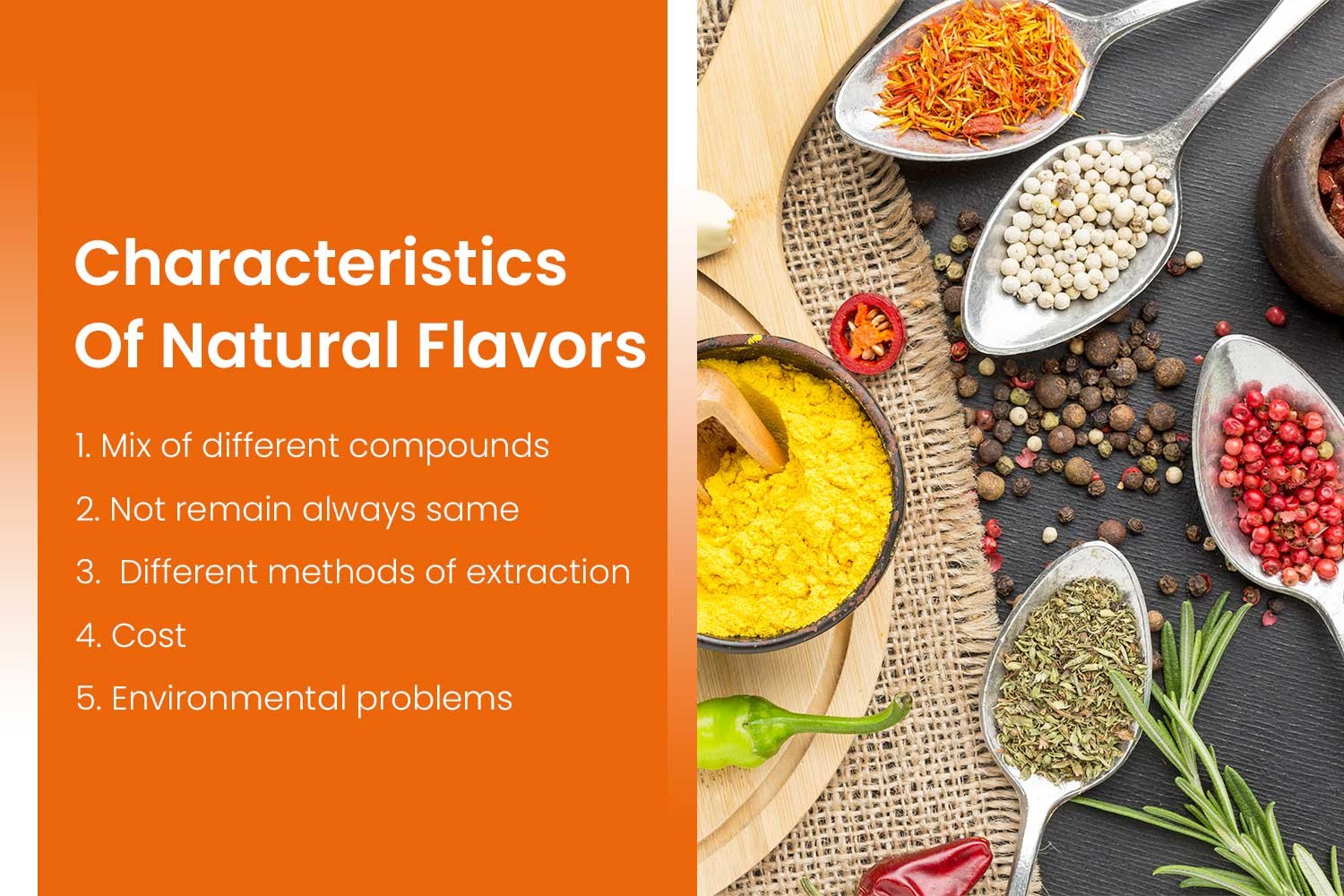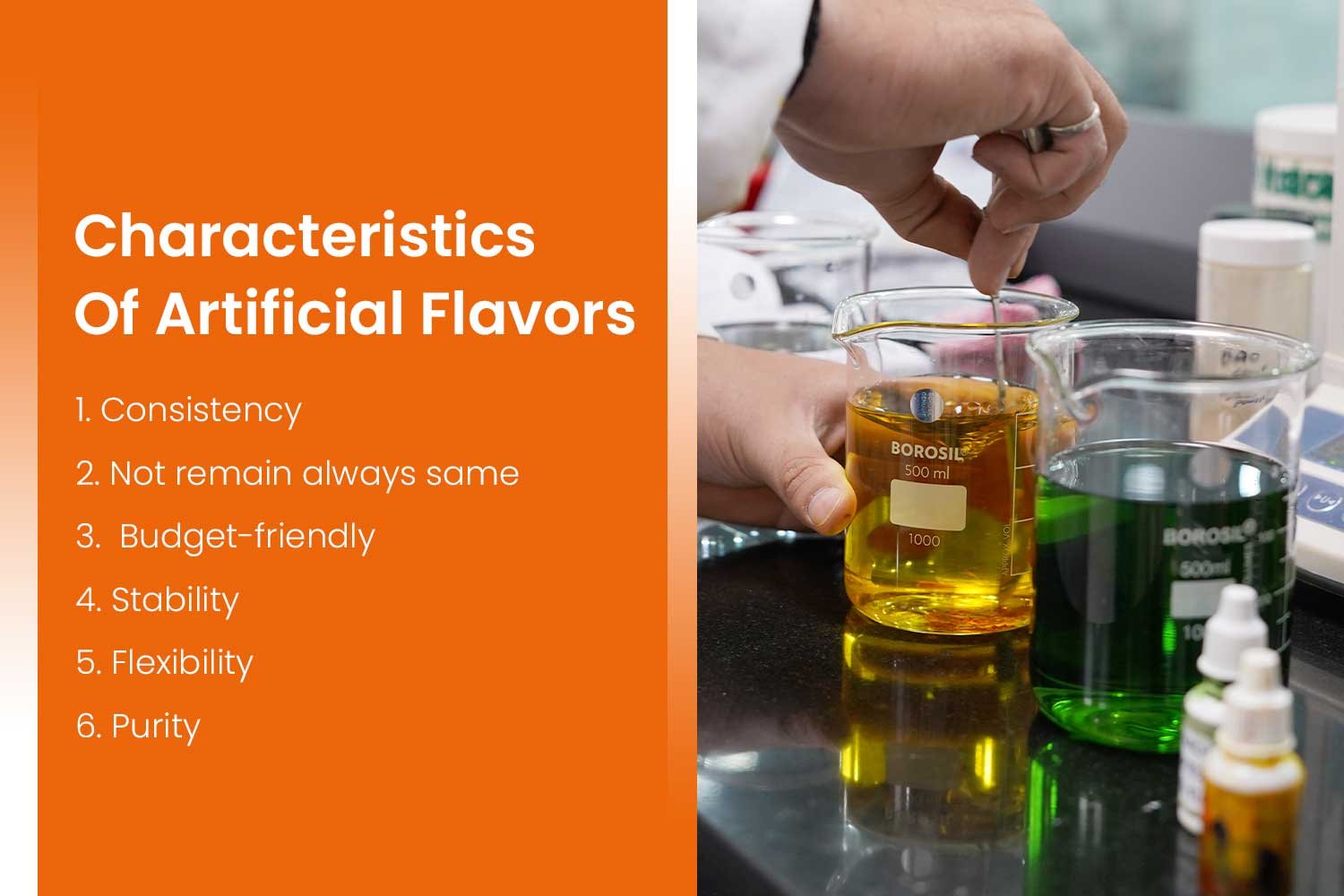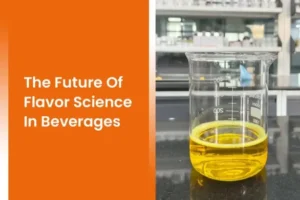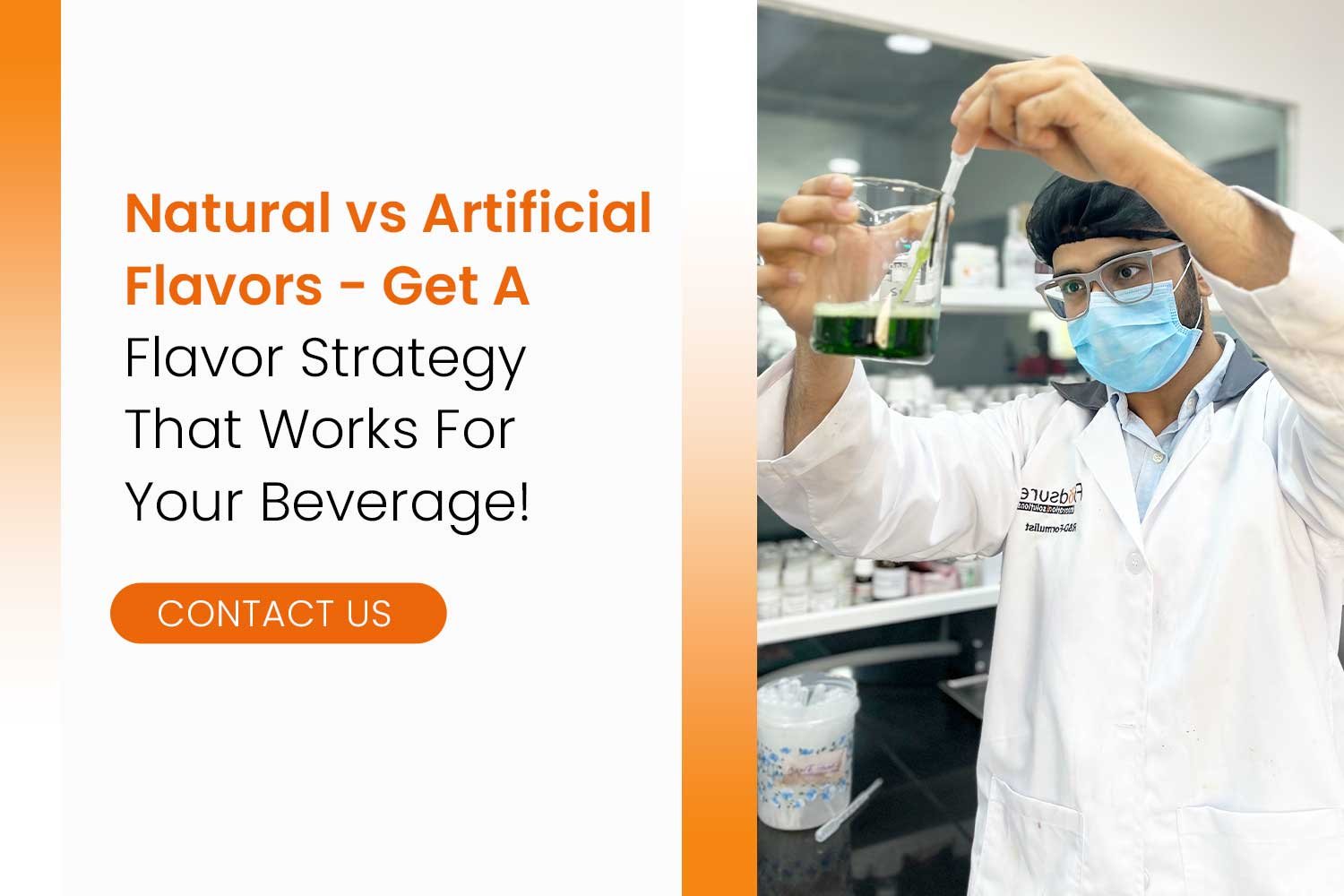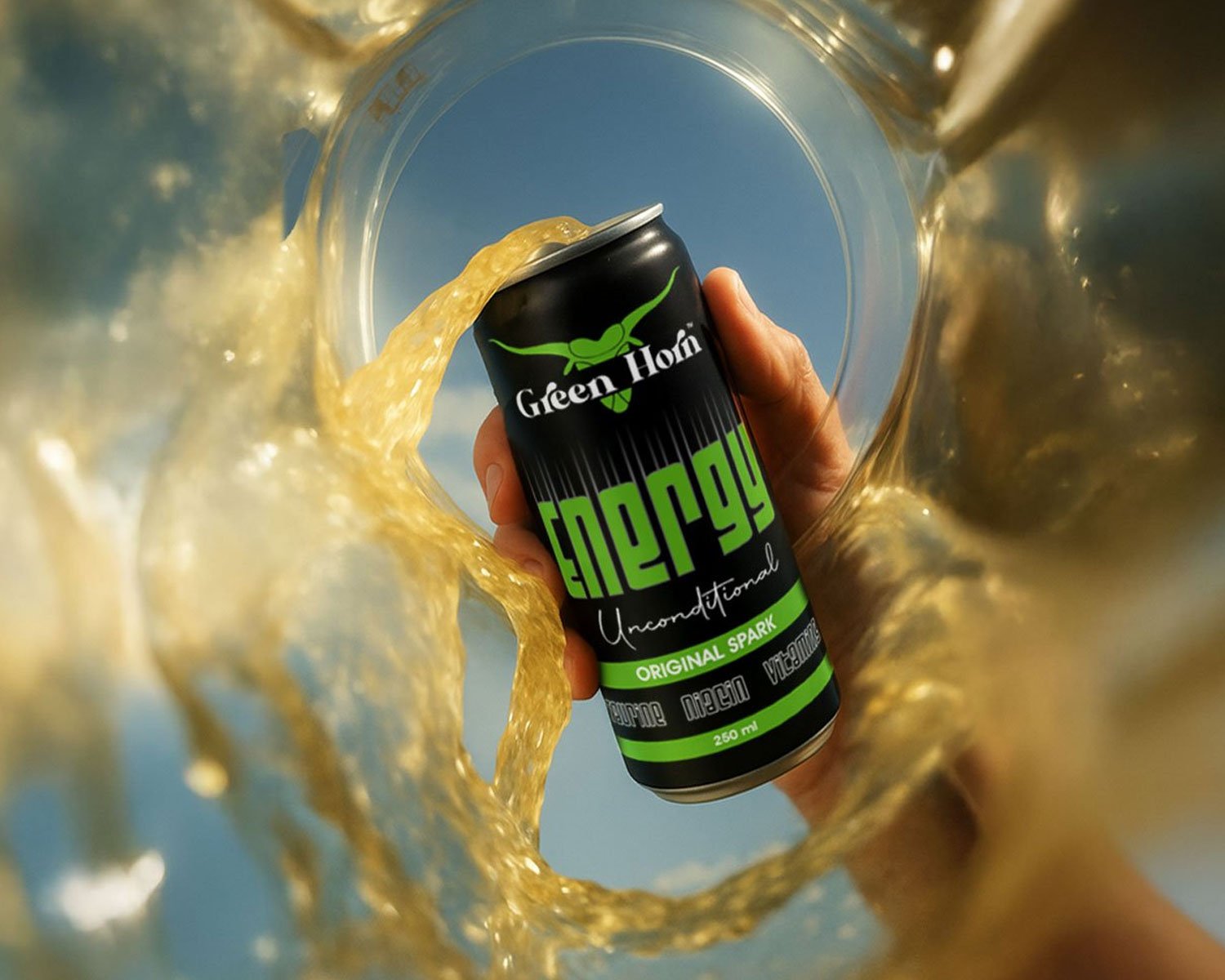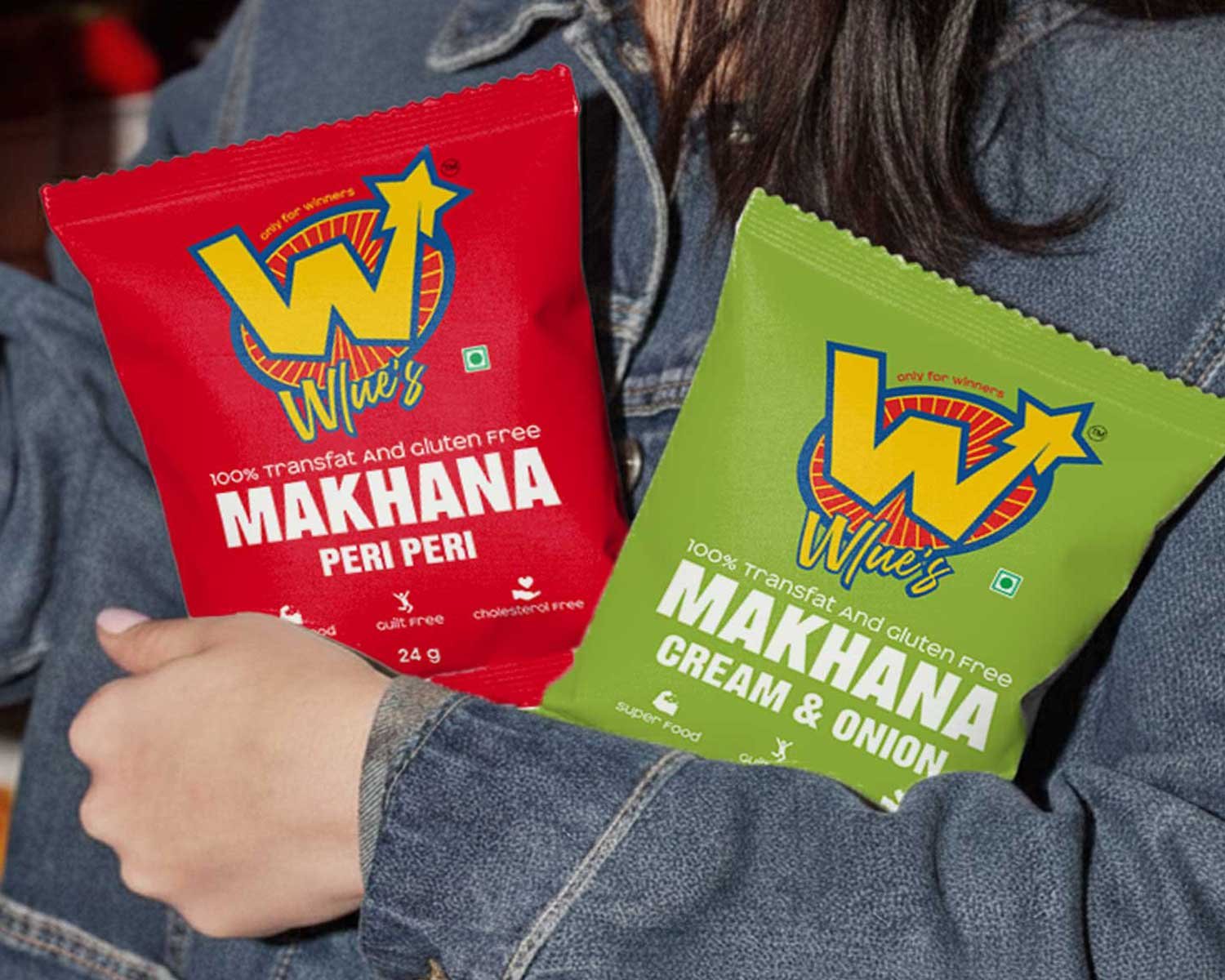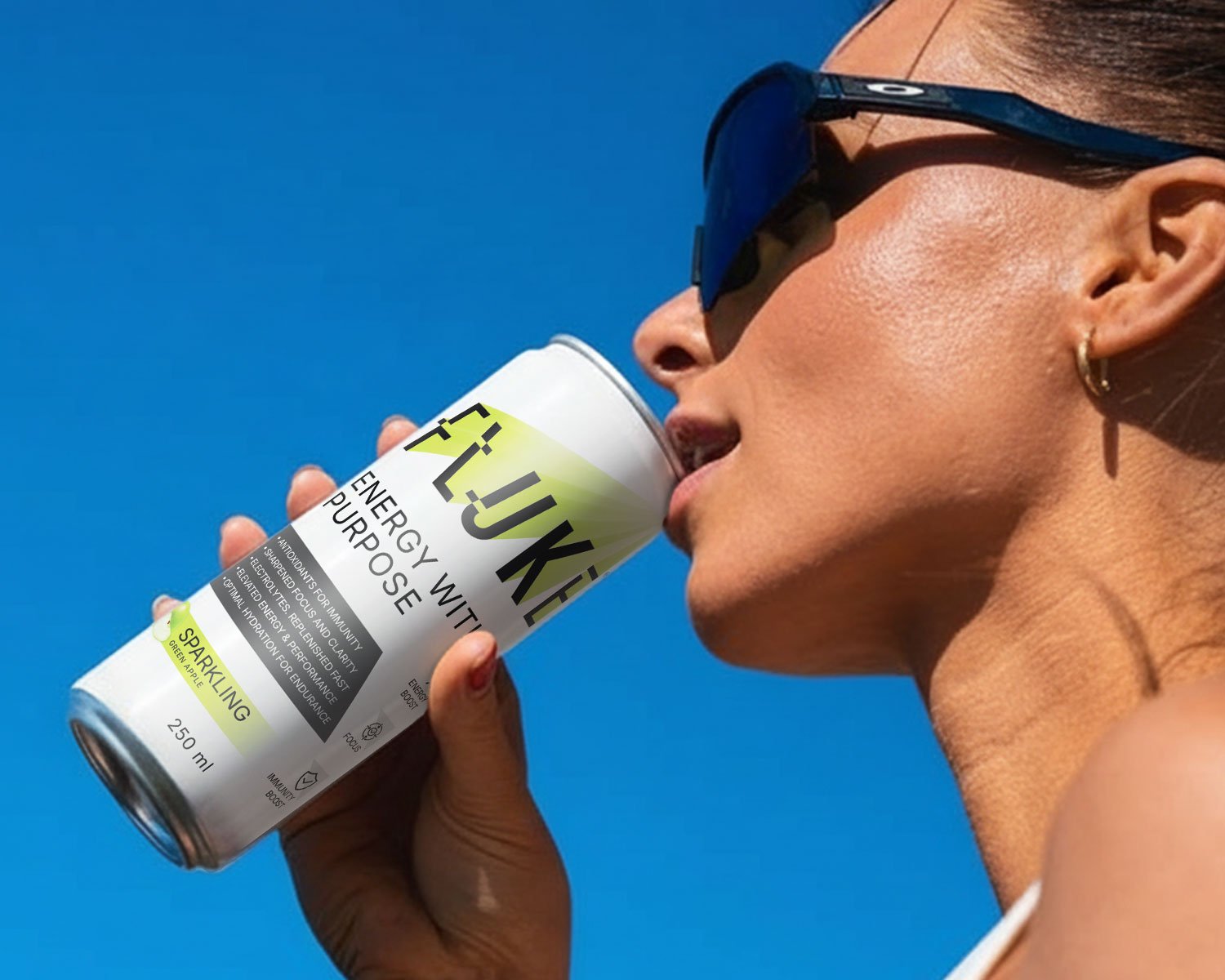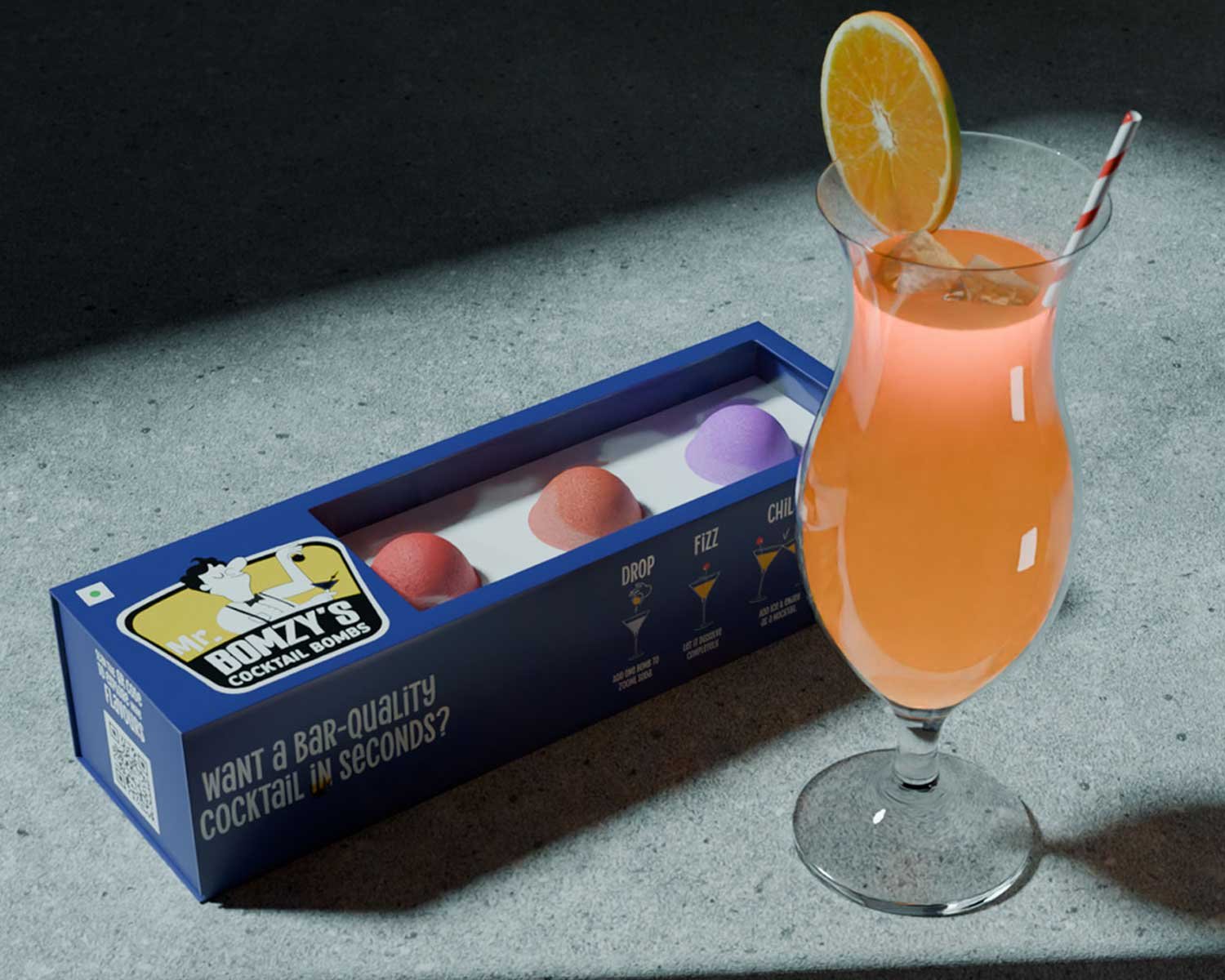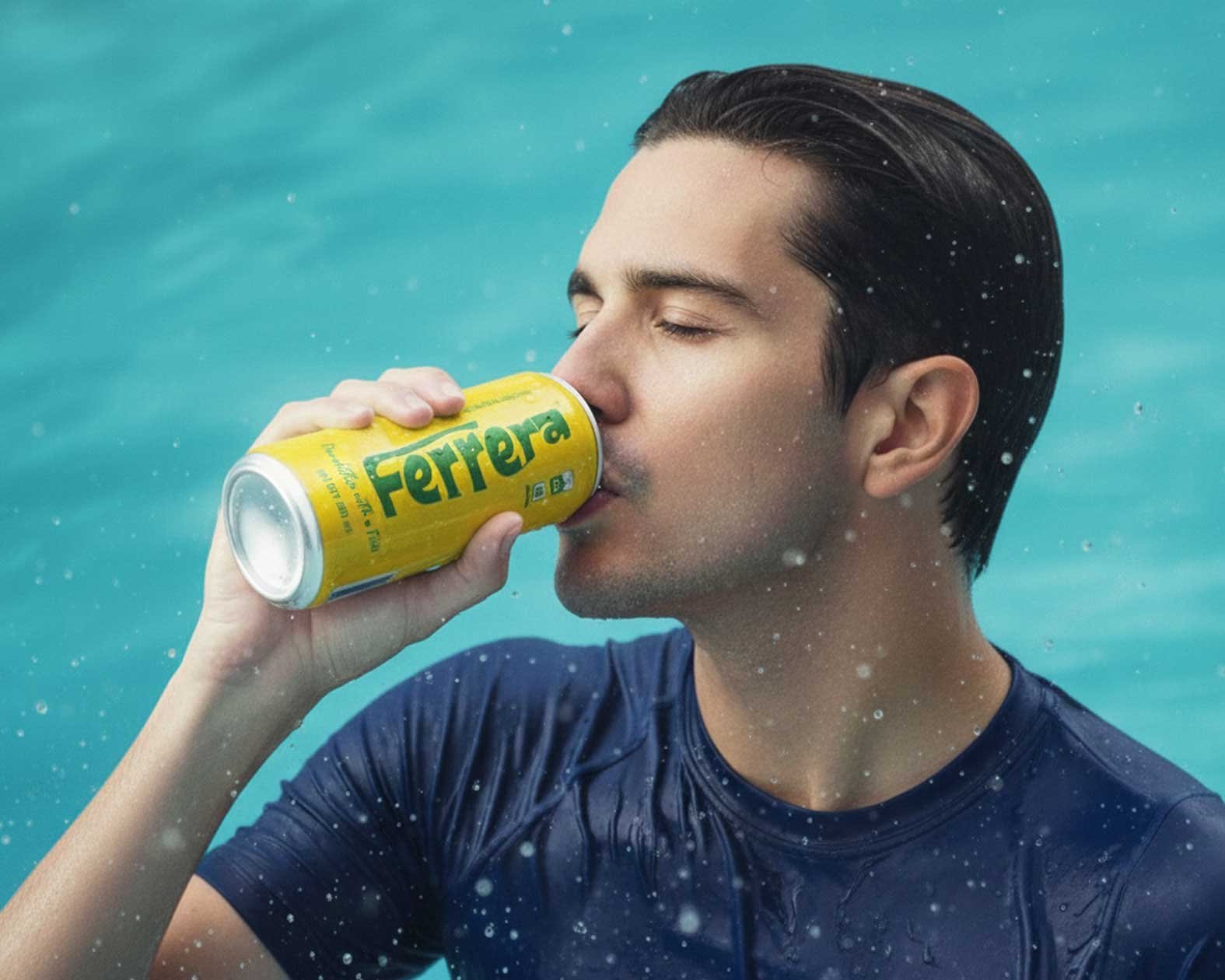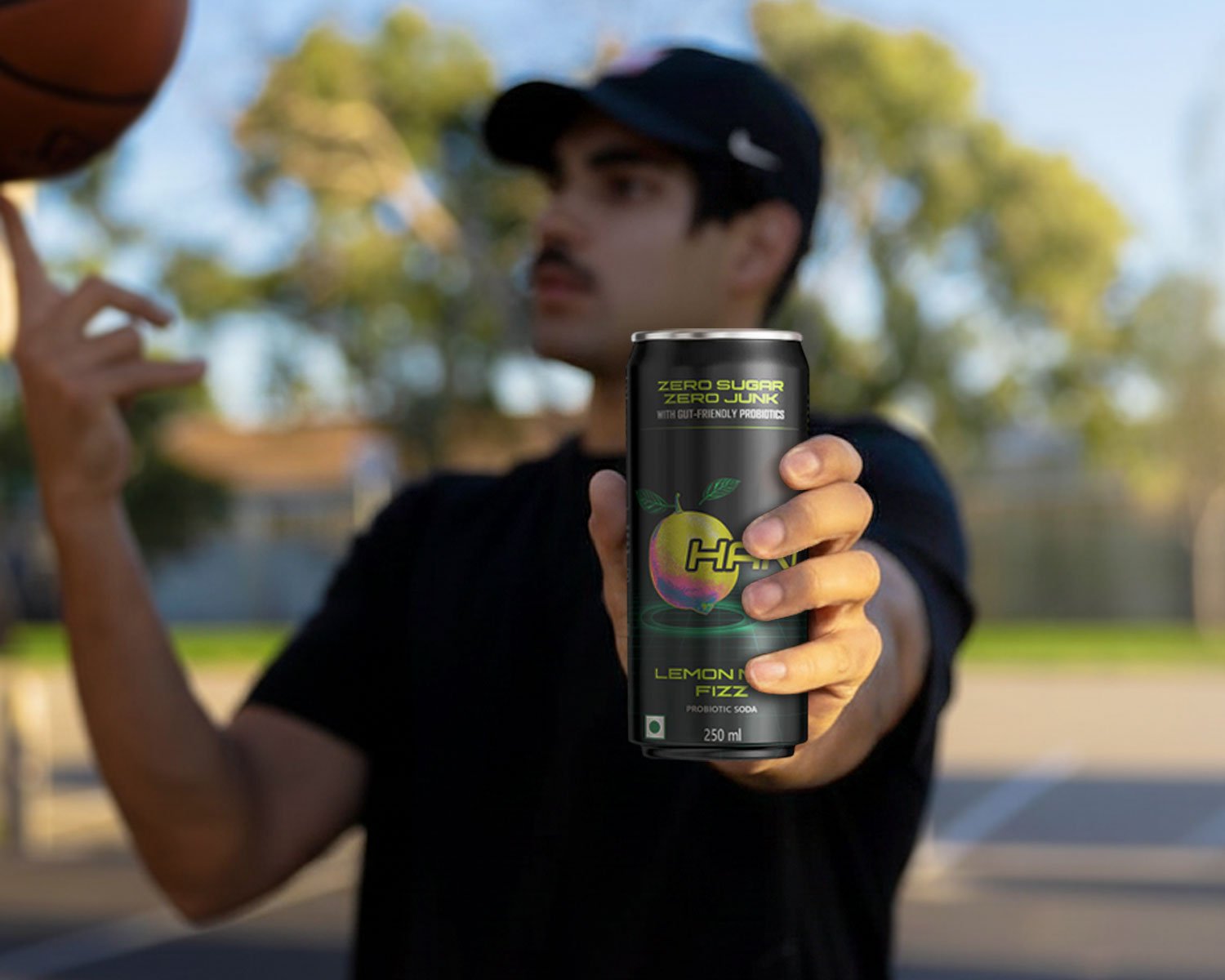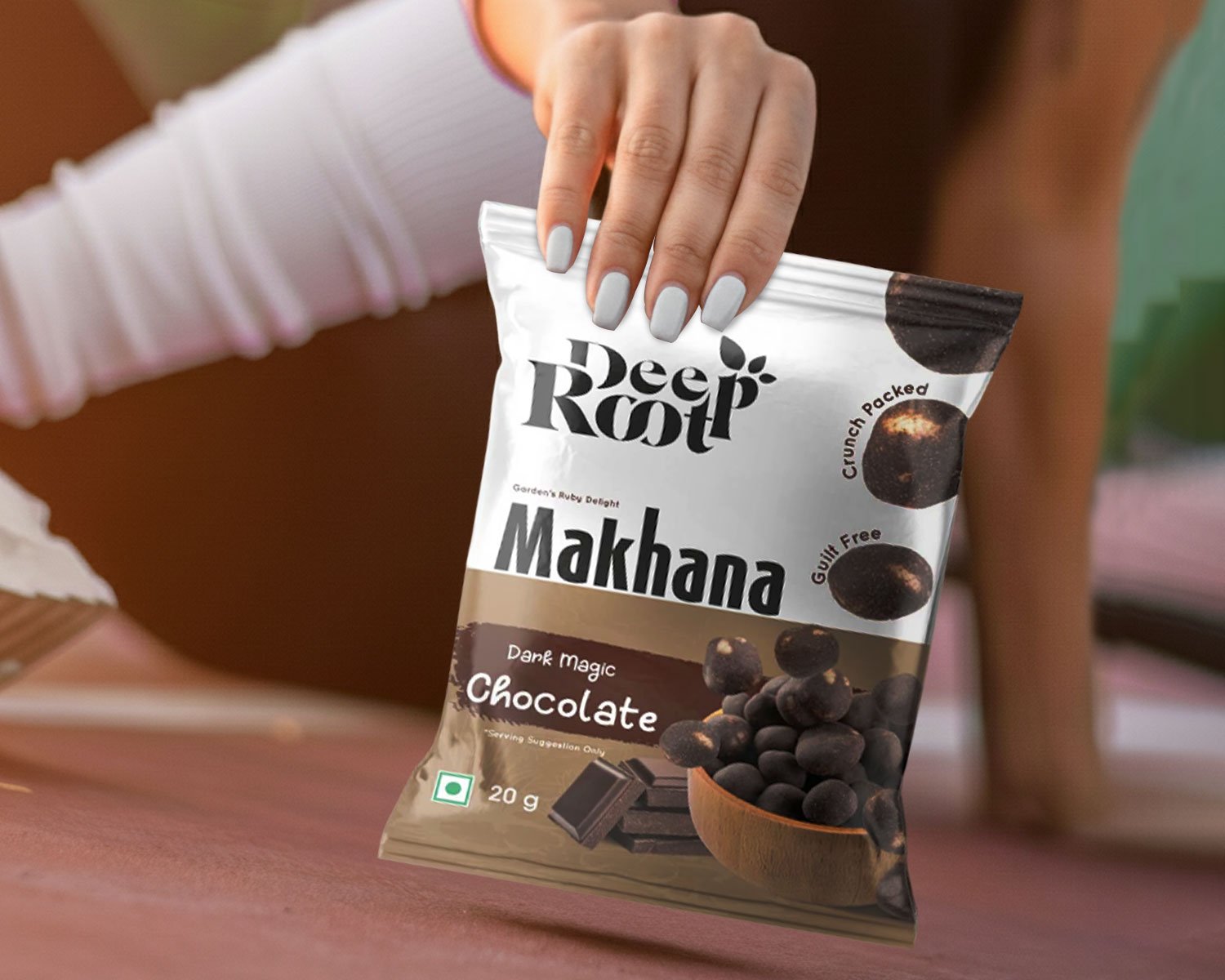Flavor shapes the world of beverages by making the drinks memorable and enjoyable for consumers. From the crisp taste of citrus sodas to the comforting notes of spiced teas, every beverage recipe development relies on a unique flavor profile. With every sip of the tasty beverage, a curiosity or confusion sparks that creates the debate on natural vs artificial flavors of beverages. While consumer preferences mostly lean towards “natural”, understanding the scientific differences is important to help consumers make informed choices about what they drink.
The Chemistry of Taste- What Defines A Flavor?
Before getting into the difference between natural and artificial flavors, firstly, it is important to know what flavor truly is. A flavor is a complex sensory experience, that is, a mixture of taste, aroma, and texture. Taste is detected by the taste buds of the tongue for sweet, sour, salty, bitter, and umami, aroma from the compounds sensed by the nose, and texture from the mouthfeel of the drink. Flavoring agents, natural or artificial, are the chemical compounds that create the particular taste and smell.
The main difference between natural and artificial flavoring agents is their origin or source. The molecules that are responsible for a particular taste, like vanillin for vanilla flavor or ethyl butyrate for pineapple flavor, can be identical for their signature taste, whether they come from plants or a lab.
Natural Flavors – Nature’s Complex Mixes
Natural flavors are the extracts that come from plant or animal sources, like fruits, vegetables, spices, herbs, meat, seafood, dairy, and fermentation products. According to regulatory bodies like the U.S. Food and Drug Administration (FDA) or the Food Safety and Standards Authority of India (FSSAI), a “natural flavor” must contain the flavoring constituents made from natural sources using processes like distillation, extraction, or fermentation.
Characteristics Of Natural Flavors
- Mix of different compounds- Natural flavors are mostly made of different chemical flavor compounds in beverages to give a rich and full flavor experience.
- Not always remain the same- The mixture can change based on the growing conditions, harvest time, and processing.
- Different methods of extraction- Common methods of extraction of natural flavors include solvent extraction, distillation, and cold pressing.
- Cost- They are more expensive due to the limited natural sources and labor-intensive processes.
- Environmental problems- Large-scale sourcing can raise environmental or resource concerns.
Despite the “natural” label, these flavors can still include solvents or preservatives to maintain the stability in the beverage.
Artificial Flavors – Made In Lab With Exact Detail
Artificial flavors are made by creating chemical compounds in a lab to get the natural flavor profiles. The flavor chemists identify the aroma and taste molecules present in natural ingredients and then synthesize these compounds.
Characteristics Of Artificial Flavors
- Consistency- They give consistency in flavor profiles as they are created carefully. This is the main advantage for the manufacturers who want consistency and uniformity in their beverage product development.
- Budget-friendly- Artificial flavors are less expensive to produce than natural flavors, as they don’t depend on crops or complex extraction.
- Stability- They are more stable than the natural flavors, which helps in the longer shelf life of the products.
- Flexibility- Can be made to create different and unique flavors, including those that are rare or costly.
- Purity- Sometimes, artificial flavors are purer than natural flavors, with fewer impurities.
Are ‘Natural’ Flavors Always Better In Beverage Recipe Formulation?
The perception that ‘natural’ means ‘healthier’ is deeply believed by many consumers. But from a scientific or regulatory point of view, the difference in health impact between the two is negligible, and they both go through the same safety checks by the regulatory authorities.
Most artificial flavors are classified as GRAS (Generally Recognized As Safe). This states that the ingredients are considered safe for consumption under specific conditions. It is important to remember that “natural” does not directly mean “safe”; many natural substances are toxic. Flavors in beverages are used in tiny amounts, so they add almost no calories or nutrients. Concerns about processed foods include both natural and artificial flavors, but flavors are just one part of a bigger picture.
Consumer Trends And Market Insights
Consumers prefer natural flavors and take products that are simple with recognizable ingredients and “clean labels”. This has increased the demand for natural flavoring agents in the beverage industry. Brands highlight the natural ingredients, or food-grade flavor ingredients, like adaptogens, plant-based, functional, and more, in the labels to attract the health-conscious consumers.
Artificial flavors are important because they are affordable and can create bold or unique beverage tastes. To get that perfect flavor, many beverage recipe formulation experts use a mix of natural ingredients to set the base and artificial ingredients to enhance the taste and increase stability of the beverage. This flavor strategy helps to balance the consumers’ demands for authentic flavors with the need for quality and affordability.
The Future Of Flavor Science In Beverages
Beverage innovation continues in both natural and artificial flavor development. Advances in biotechnology and chemistry help to do a more environmentally friendly extraction of natural compounds and the creation of new synthetic flavors. These increase the interest of “functional beverage flavors” among consumers for their properties of giving health benefits, like adaptogens or nootropics.
Selecting between natural and artificial flavors depends on cost, consistency, availability, and preferences of the consumers. Both types are safe when regulated. The “natural” flavor remains a strong marketing tool, but understanding the science behind flavoring helps consumers make better choices.
Natural vs Artificial Flavors – Get A Flavor Strategy That Works For Your Beverage!
The world of beverage flavoring is complex and important for beverage products. As you have seen, the choice between natural and artificial flavors is not just about the labels; it impacts taste profile, cost, consistency, and perception of the consumers.
These factors help the beverage startups to create a drink that is unique, meet market demands, and align with their brand’s vision. This needs a complete flavor strategy with flavor formulation consultants.
Don’t leave your beverage’s success to chance. You want to launch a new beverage product, reformulate an existing beverage, or want a specific “clean label “beverage appeal; our expertise in flavor science and market trends can guide you.
Connect with our flavor specialists today to develop a customized flavor strategy for perfect taste that is cost-friendly and appealing to your consumers. Let’s create your next market winner together! Call us on +91 8130404757
FAQs
What’s the real difference between natural and artificial flavors in beverages?
Natural flavors are extracted from plants or animals, whereas artificial flavors are created by flavor scientists to get the same tastes, but they’re made in a lab. But sometimes the molecules are identical, and the journey from source to sip makes them different.
Do natural flavors taste better than artificial ones in beverages?
Natural flavors give a more complex, layered experience, like the difference between fresh-squeezed juice and candy. Artificial flavors are made for consistency and punch, so they’re bold and reliable. Some people crave the authenticity of natural, while others love the intensity of artificial.
Are beverages with natural flavors healthier or safer than those with artificial flavors?
Assuming natural means healthier is easy, but as per the regulations, both types of flavors have to undergo strict safety checks before they hit your glass. Natural flavors come from real sources but can be heavily processed. Artificial flavors are made for purity and safety, which can be controlled easily.

